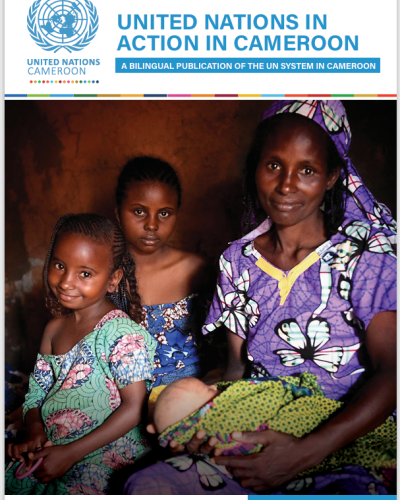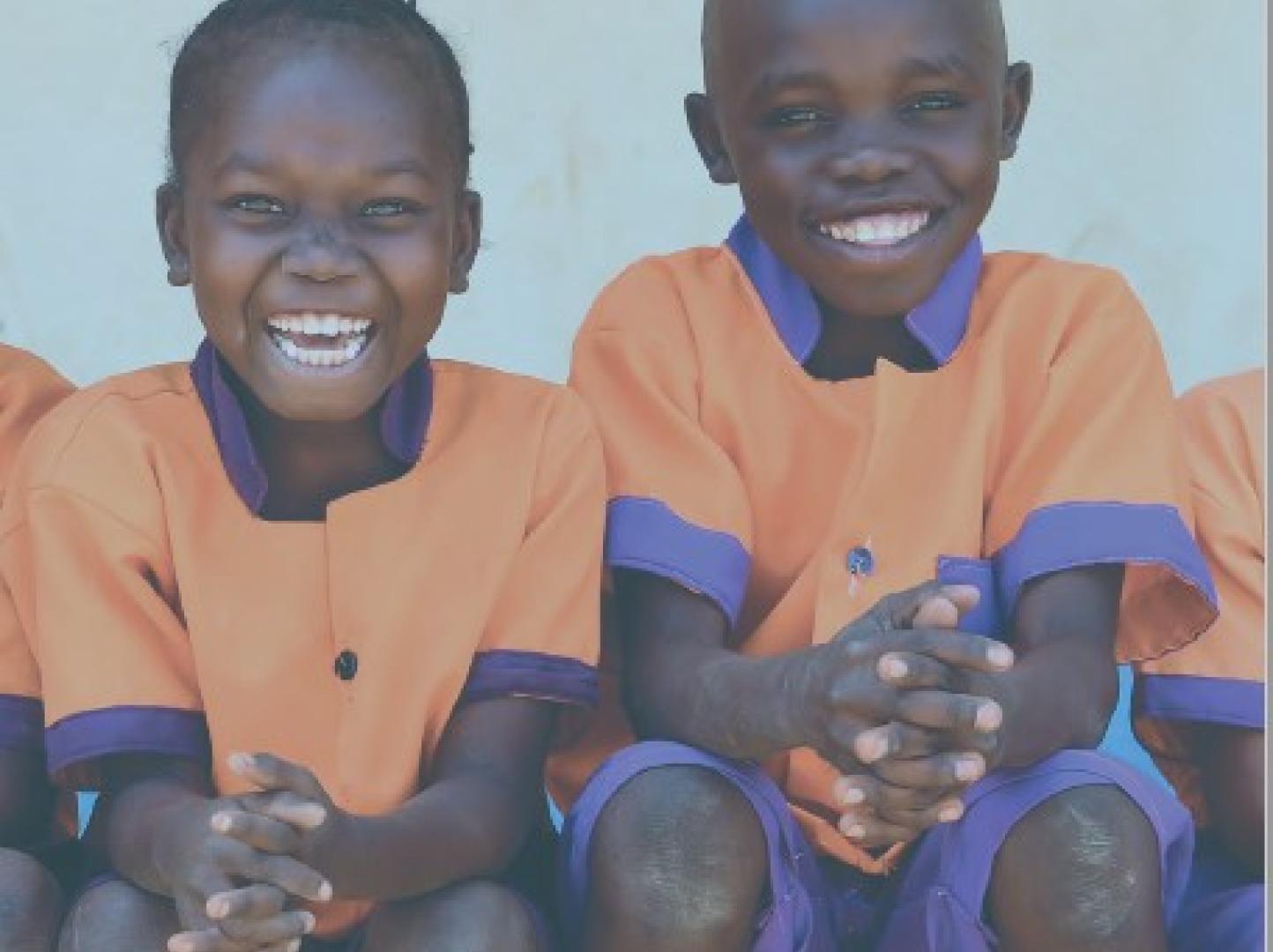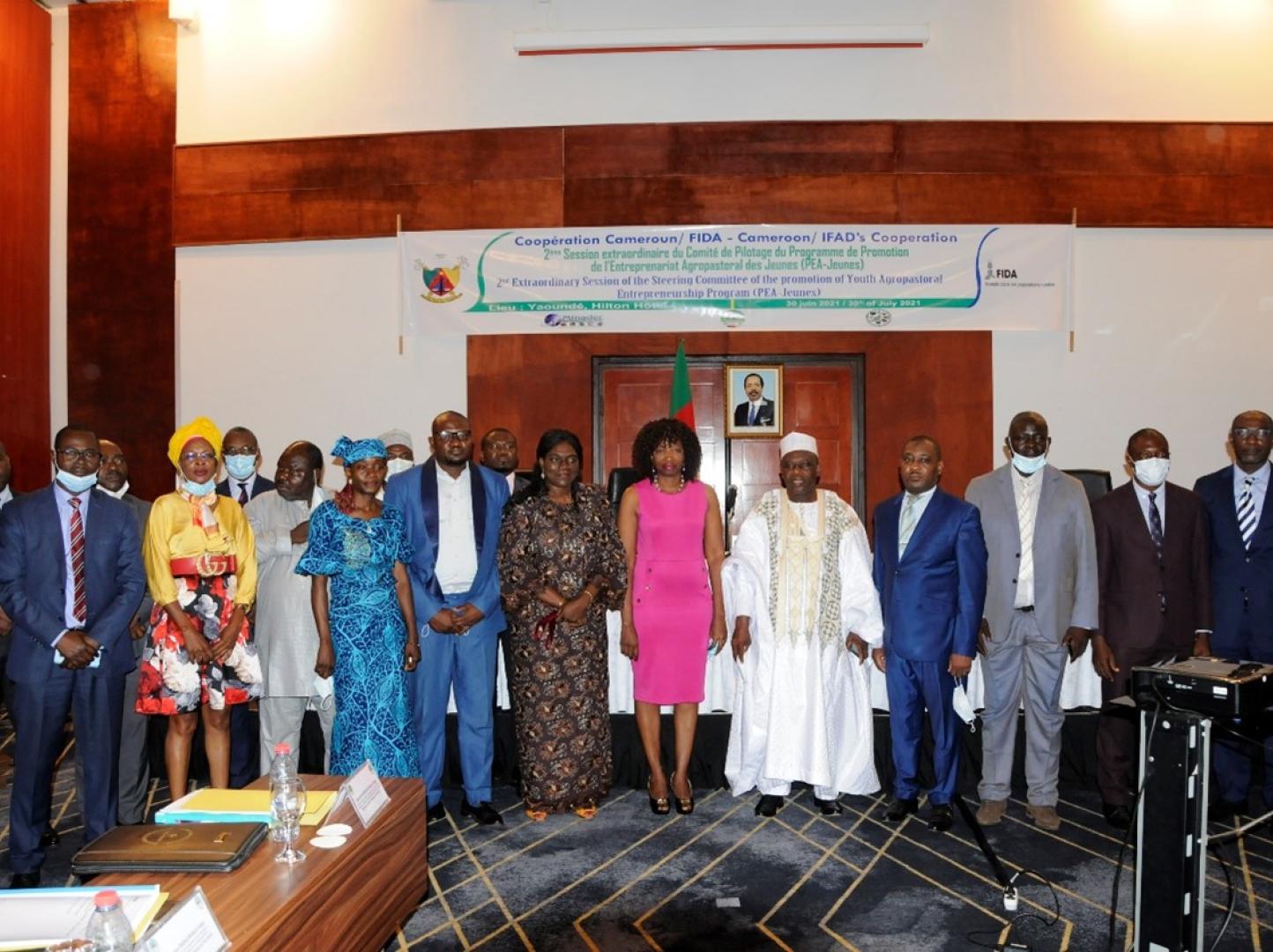UN Cameroon Newsletter- June 2024

I am delighted to share with you this second edition of our quarterly newsletter “United Nations Actions in Cameroon”, with a glimpse into the work of the UN Country Team (UNCT) in Cameroon with a focus on Gender Equality and Women’s Empowerment. Gender equality is the effort to shape attitudes and policy decisions that endorse equitable distribution of resources among men and women, girls and boys.
It is a way of looking at how social norms and power structures impact the lives and opportunities available to different groups of men and women. Understanding that men and women, boys and girls, experience poverty differently, face different barriers in accessing services, economic resources and political opportunities helps to target interventions. The world is at a crucial crossroad for gender equality. Globally 10.3 per cent of women live in extreme poverty today. Progress towards ending poverty needs to be 26 times faster to achieve the Sustainable Development Goals by 2030. In Cameroon, while 39% of the national population lives below the poverty line, this rate rises to 51.5% for women, noting that 79.2% of them are underemployed.
To advance the SDG targets and achieve the 2030 Agenda, gender inequality must be brought to the forefront of programmes and analyses. Faster progress across all the SDGs will largely depend on the thorough integration of gender dimensions in public policies. EDITORIAL (ENGLISH) If women - who account for half the world’s working age population - do not achieve their full economic potential, the global economy will suffer. In fact, if women were afforded the same equity as men in the labour market, the global annual GDP could potentially grow by as much as $28 trillion, or 26 per cent by the year 2025. Moreover, gender inequality in education prevents progress in the reduction of unintended pregnancies, high fertility and child mortality rates, thereby compromising a country’s well-being. Societies that encourage women to hold political leadership positions demonstrate more equally balanced schools and are overall more peaceful and equitable.
The UN’s commitment to achieving system-wide gender parity is underpinned by a strong legislative and institutional framework, which has been consistently developed and strengthened since the establishment of the United Nations in 1945. This framework includes the Charter of the United Nations, the Commission on the Status of Women (CSW), the Convention on the Elimination of All Forms of Discrimination against Women (CEDAW), Resolutions of the General Assembly, the Beijing Declaration and Platform for Action of the Fourth World Conference on Women, and most recently the 2030 Agenda for Sustainable Development. Gender consideration is a fundamental programming principle of the United Nations System. The Cooperation Framework 2022-2026 between Cameroon and the United Nations dedicated an outcome dealing exclusively with gender equality and the empowerment of youth, women and girls in its second strategic axis on social human development. Through this cooperation instrument, which is in its third year of implementation, the UN System is supporting the government in achieving the following gender related issues.











